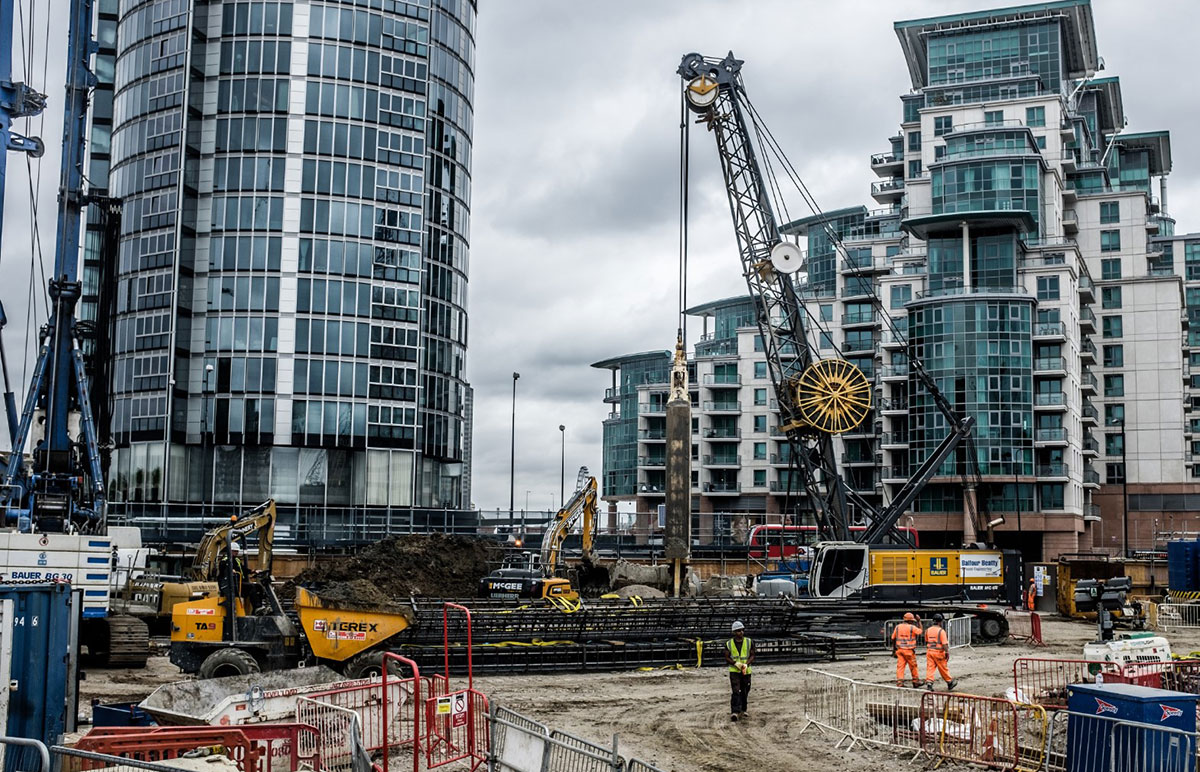Geotheta for Dummies
Geotheta for Dummies
Blog Article
The 7-Minute Rule for Geotheta
Table of Contents10 Easy Facts About Geotheta DescribedHow Geotheta can Save You Time, Stress, and Money.Everything about GeothetaThe Greatest Guide To GeothetaGeotheta Fundamentals Explained

They conduct website investigations, gather examples, execute research laboratory examinations, and examine information to review the viability of the ground for building projects - Consulting Engineers. Based upon their searchings for, geotechnical engineers give recommendations for foundation design, slope security, retaining structures, and mitigation of geotechnical hazards. They collaborate with various other experts, such as designers, architectural engineers, and construction teams, to guarantee that geotechnical factors to consider are incorporated right into the general project style and application
By assessing the actions and properties of soil and rock, they can determine possible geotechnical hazards such as landslides, soil settlement, or slope instability. Their know-how assists protect against failures or mishaps that might jeopardize lives and home. Here are some thorough duties and duties of a geotechnical engineer: Site Examination: Geotechnical designers conduct website examinations to gather information on subsurface problems.
They interpret the data to comprehend the residential properties and actions of the soil and rock, including their toughness, permeability, compaction attributes, and groundwater conditions. Geotechnical Analysis and Layout: Geotechnical engineers assess the data collected during site investigations to analyze the stability and viability of the website for construction tasks. They do geotechnical estimations and modeling to assess elements such as birthing capability, settlement, slope security, lateral earth stress, and groundwater circulation.
The 20-Second Trick For Geotheta
Structure Design: Geotechnical engineers play an essential function in making structures that can safely sustain the designated structure. They analyze the dirt conditions and lots requirements to identify the suitable foundation type, such as superficial foundations (e.g., footings), deep structures (e.g (https://geotheta.start.page)., heaps), or specialized methods like dirt enhancement. They take into consideration factors such as settlement limitations, bearing ability, and soil-structure interaction to establish ideal structure layouts
They evaluate construction plans, screen site activities, and carry out field examinations to confirm that the style referrals are followed. If unpredicted geotechnical issues arise, they evaluate the circumstance and provide recommendations for remediation or changes to the layout. Threat Evaluation and Mitigation: Geotechnical designers evaluate geotechnical risks and threats connected with the task website, such as landslides, liquefaction, or soil erosion.

Cooperation and Interaction: Geotechnical designers function closely with various other experts entailed in a job, such as engineers, architectural designers, and construction teams. Efficient communication and cooperation are vital to integrate geotechnical considerations into the general task design and building and construction process. Geotechnical designers supply technical expertise, answer queries, and make certain that geotechnical needs are satisfied.
About Geotheta
Right here are some sorts of geotechnical designers: Foundation Designer: Foundation engineers concentrate on making and evaluating structures for structures. They examine the dirt problems, tons requirements, and site qualities to identify one of the most proper structure kind and layout, such as shallow structures, deep structures, or specialized methods like pile foundations.
They examine the variables influencing incline stability, such as dirt buildings, groundwater problems, and slope geometry, and develop methods to stop slope failures and reduce threats. Quake Engineer: Earthquake engineers specialize in analyzing and developing structures to withstand seismic pressures. They assess the seismic danger of a website, assess soil liquefaction possibility, and establish seismic design standards to guarantee the safety and security and strength of structures throughout quakes.
They do field screening, gather samples, and examine the accumulated data to identify the dirt homes, geologic formations, and groundwater conditions at a website. Geotechnical Instrumentation Engineer: Geotechnical instrumentation engineers concentrate on monitoring and determining the behavior of soil, rock, and structures. They mount and preserve instrumentation systems that keep track of factors such as soil settlement, groundwater degrees, slope movements, and structural variations to analyze efficiency and give very early warnings of possible concerns.
Geotheta Can Be Fun For Everyone
They perform examinations such as triaxial examinations, consolidation examinations, straight shear tests, and leaks in the structure examinations to collect data for geotechnical analysis and layout. Geosynthetics Engineer: Geosynthetics engineers focus on the style and application of geosynthetic materials, such as geotextiles, geogrids, and geomembranes. They make use of these products to boost dirt stability, strengthen slopes, provide drainage options, and control erosion.
They tend to be investigative individuals, which implies they're intellectual, reflective, and curious. They are curious, systematic, logical, logical, and rational. Some of them are likewise social, implying they're kind, generous, cooperative, client, caring, practical, compassionate, sensible, and friendly - Consulting Engineer.
In the office atmosphere, geotechnical engineers make use of specialized software see this page tools to execute calculations, produce styles, and assess data. They prepare reports, review project specifications, communicate with clients and staff member, and coordinate project tasks. The workplace setting supplies a conducive setting for study, analysis, and collaboration with various other professionals associated with the job.
The Facts About Geotheta Revealed
They often go to task sites to perform site investigations, analyze geotechnical problems, and gather information for analysis. These gos to entail taking a trip to various places, in some cases in remote or tough terrains. Geotechnical engineers might do soil tasting, conduct tests, and screen building and construction tasks to make sure that the geotechnical aspects of the job are being carried out properly.
Geotechnical engineers additionally work in specialized geotechnical research laboratories. In these centers, they carry out experiments, do examinations on soil and rock samples, and analyze the design residential properties of the products. Geotechnical research laboratory engineers function thoroughly in these environments, handling testing tools, running instruments, and recording data. They collaborate with various other lab staff to ensure accurate and trusted screening results.
Report this page